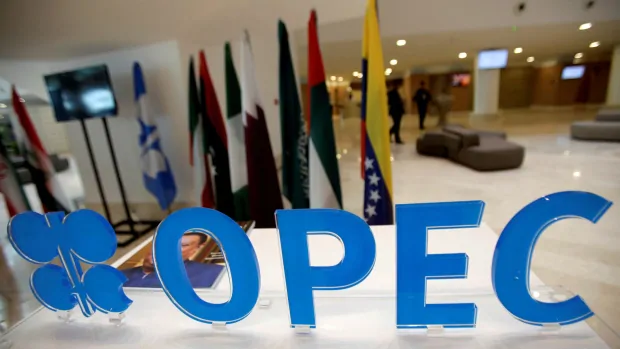Global pact forged to contain oil price crash

The OPEC oil cartel and other oil producers agreed Sunday to boost oil prices by cutting nearly 10 million barrels a day in production, or a tenth of global supply, according to several national energy officials who participated in the talks.
Mexico’s energy minister said Sunday on Twitter that the group of nations agreed to cut 9.7 million barrels a day to begin May 1. Kuwait Oil Minister Khaled al-Fadhel tweeted similar information Sunday.
Iran’s oil ministry also tweeted confirming the 9.7 million cut for May and June. It said the so-called OPEC+ countries agree to have Mexico reduce its output by 100,000 barrels only for those two months. That had been a sticking point for the accord meant to boost global energy prices.
The agreement would be an unprecedented global pact to stabilize the market.
The biggest cut to oil output ever, the countries will keep gradually decreasing curbs on production in place for two years until April 2022.
Measures to slow the spread of the coronavirus have destroyed demand for fuel and driven down oil prices, straining budgets of oil producers.
U.S. President Donald Trump had threatened OPEC leader Saudi Arabia with oil tariffs and other measures if it did not fix the market’s oversupply problem. Low prices have put the U.S. oil industry, the world’s largest, in severe distress.
OPEC+ has said it wanted producers outside the group, such as the United States, Canada, Brazil and Norway, to cut a further 5 per cent, or 5 million bpd.
Canada and Norway had signalled willingness to cut. The United States, where legislation makes it hard to act in tandem with cartels such as OPEC, said its output would fall steeply by itself this year due to low prices.
Mexico had initially blocked the deal but its president, Andres Manuel Lopez Obrador, had said Friday that he had agreed with Trump that the U.S. will compensate what Mexico cannot add to the proposed cuts.
“The United States will help Mexico along and they’ll reimburse us sometime at later date when they’re prepared to do so,” Trump said at a White House press briefing Friday.
A 15 per cent cut in supply might not be enough to arrest the price decline, banks Goldman Sachs and UBS predicted last week, saying Brent prices would fall back to $20 US per barrel from $32 at the moment, and $70 at the start of the year.



